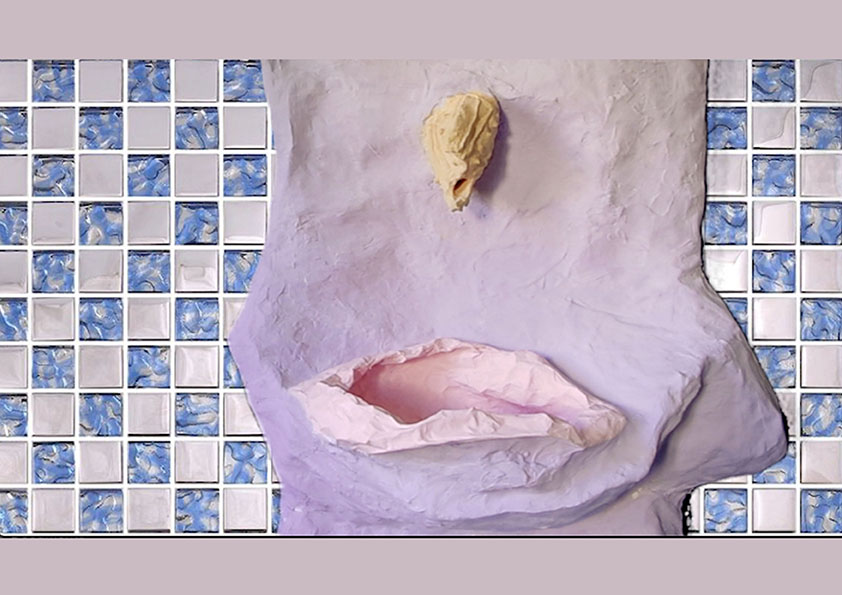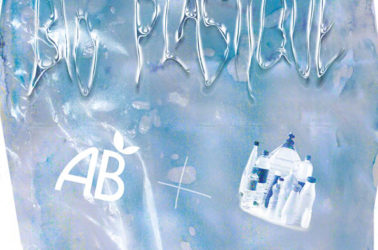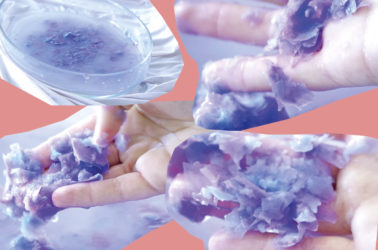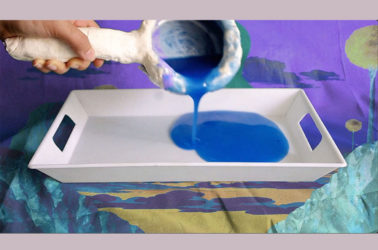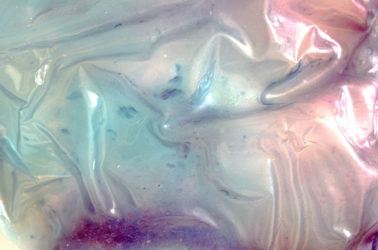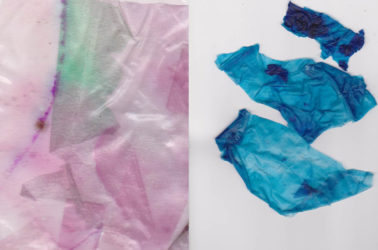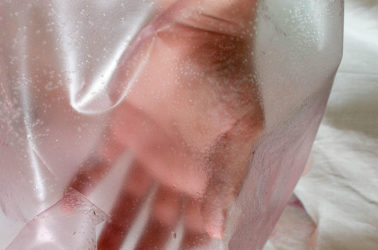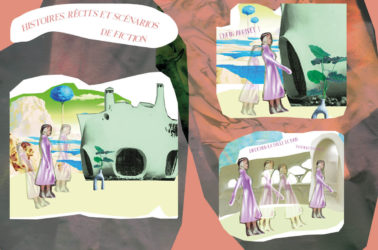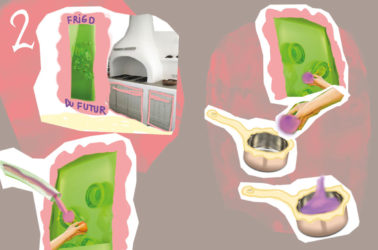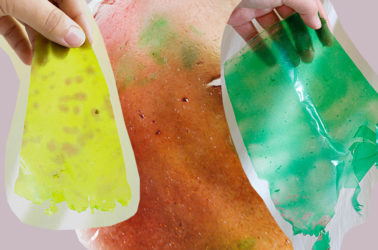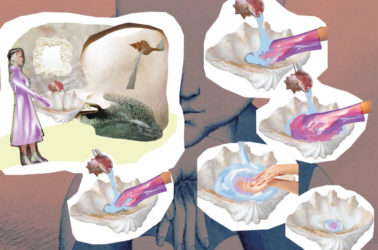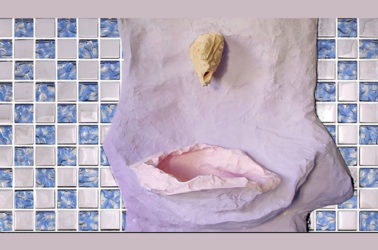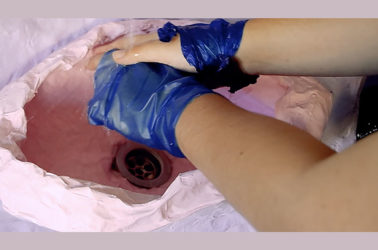Face à une industrie de la mode toujours plus productive et polluante, La fabrique du vêtement constitue une recherche sur le bioplastique, matériau biodégradable. Les matières biosourcées permettraient d’en finir avec le gaspillage textile, de limiter la culture de coton, désastre écologique.
Cette recherche s’inscrivant dans le champ du design spéculatif, j’explore de potentielles alternatives au système actuel à partir de récits de fiction mêlant collages, films et expérimentations plastiques. Dans un futur proche, l’écroulement de l’industrie textile a laissé place à un système domestique de production de vêtements biodégradables. Ainsi la démarche adoptée permet de poser les questions suivantes : comment les fabriquer ? Comment passer à une production artisanale et accessible à tous ? Que ferions-nous de ces vêtements une fois utilisés ? Comment les porter, les manier, les laver, les ranger , les recycler ?
Cette proposition de design qui défie la logique et les lieux communs, permet de justifier une pratique de « l’impossible ». Ce travail se concentre sur l’usage ainsi que sur la perception de la mode éthique en développant un univers qui prend à contre-courant les clichés dont celle-ci souffre. Ici, les expérimentations aux couleurs vives, donnent un côté artificiel aux matières, à l’inverse des tonalités naturelles habituellement associée à la mode éthique permettant de toucher un public nouveau.
Nowadays, the fashion industry is a lot more productive and increasingly harmful to the environment due to water waste, cotton growing, or ocean pollution, La fabrique du vêtement is a research about biodegradable materials, such as bioplastic. Using organic materials and recycling textile in fashion would put an end to the environmental disaster this industry creates. Through a speculative narrative, scenarios, collages, films and photomontages, I am imagining a new and brighter future, possibilities that could replace the actual system.
In a near future, the fashion industry is likely to collapse, thus allowing a domestic and artisanal system of making clothes to be a new way of considering fashion through the prism of biodegradable issues. With this situation, questions arise : How can one wear clothes made from bioplastic ? How can they be made ? What should be done with them after they have been worn ? Should they be washed ? Or should they be recycled?
Doing this research through critical design is a way to move beyond the impossibilities of science and technology. My work focuses on the way ethical fashion is perceived, by developing a unique, colorful and slightly weird universe which goes exactly against the usual image that ethical fashion suffers from. The bright colors making bioplastics look unnatural (while they are 100% natural) somehow can create an interest in ethical fashion for a whole new audience.
